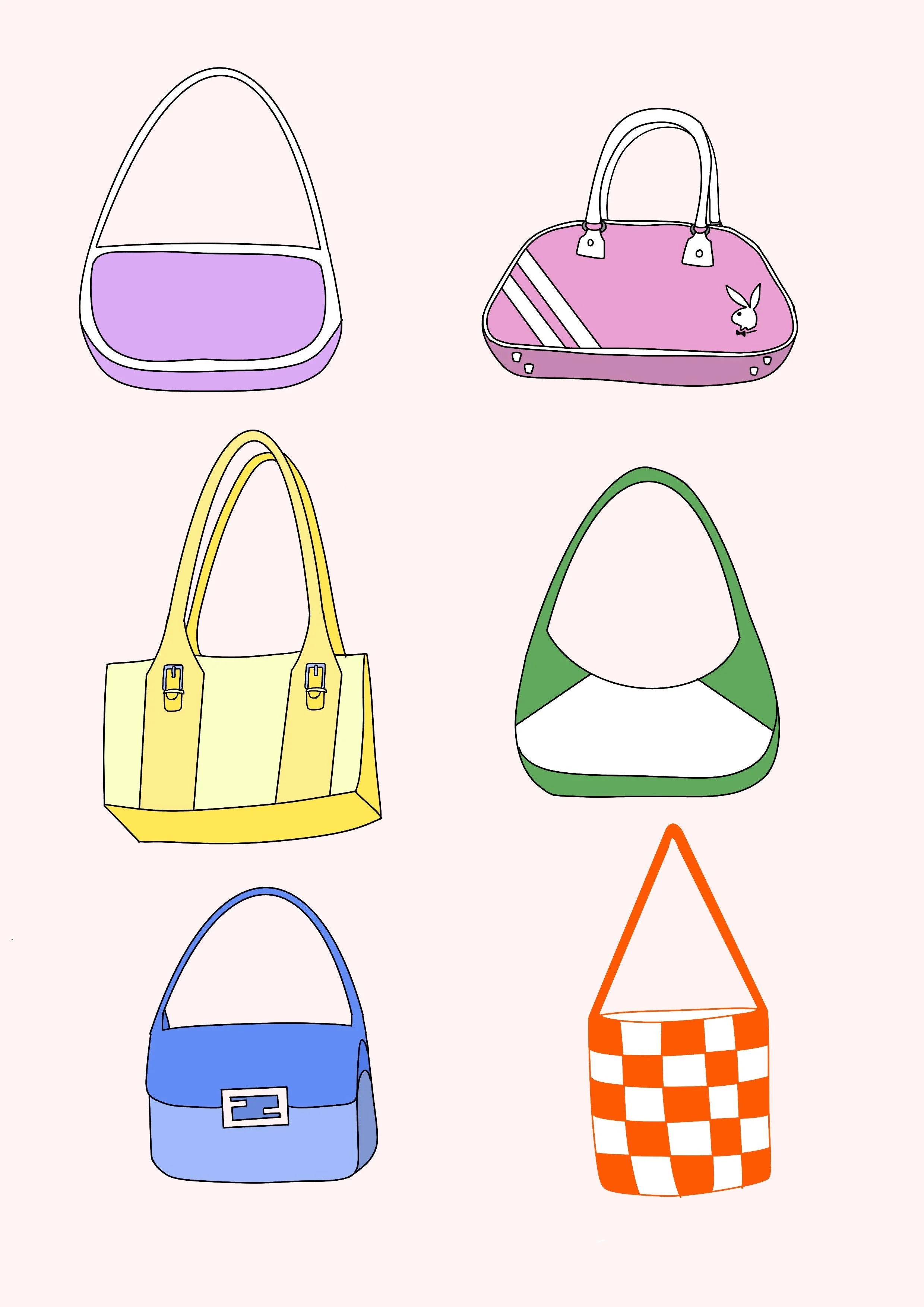Is TikTok Promoting the Overconsumption of Goods?
By Sarah O’Connell
Illustration by Toraigh Holland
TikTok has become one of the biggest, and fastest growing social media platforms over the last year. It has everything from lip-sync videos, to dance trends, to life hacks, and psychology tips, the app covers it all. One of the most popular types of videos on TikTok is fashion hauls. We have seen fashion influencers move over from Instagram to TikTok to try their hand at reaching their audience on a second platform. The different video effects and fun transitions have provided these fashion focused influencers with great new ways to show off their hauls. But is this coming at a cost?
One of the most common hauls seen on TikTok is with clothing from the fashion brand Shein. Shein is known for having the hottest trends at the lowest prices, making it a popular site amongst students and young people. Shein is a fast fashion site offering up items of clothing for prices as low as four euro. It is no secret that brands producing clothing constantly at this fast rate are simply not doing it ethically. And it begs the question, who made these clothes? To be offering prices as low as Shein is it is almost guaranteed that their workers are not being paid a fair wage, most likely being exploited for their labour in horrific working conditions. Despite the effects of fast fashion being a known fact in society today, it has not stopped the popularity of Shein and other brands alike. Every second video on TikTok appears to be a Shein haul where we see a TikToker who has bought a huge array of items due to the low price. There is no doubt that this is promoting the overconsumption of fast fashion in our society. With the pressures young people feel today, to keep up with the hottest trends in fashion, it is no wonder they flock to sites like Shein, where they can keep up with these trends without breaking their bank accounts. This is sadly coming at a huge cost for the environment and for the garment workers making these clothes.
Fast fashion thrives on the insecurities of people. Fast fashion tells us that we must have the ‘hottest trends’ to be worthy and liked in society. Trends that go out of style faster than they came in are encouraged by psychological marketing techniques. We see it in wording of emails from fast fashion sites. Phrases like, ‘Last chance to buy’ and ‘Get the hottest new trends’ are examples of language techniques to encourage you to spend more in order to feel accepted in society.
We are all familiar with this type of advertising as we see it so often, but how do these marketing techniques translate to TikTok videos? The persuasive, almost aggressive language encouraging consumers to buy more has carried over into TikTok. A common haul seen by fashion TikTokers is ‘must have’ hauls. Whether it be ‘must have’ bikini hauls for summer or ‘must have’ jackets for winter, this type of haul is making viewers feel they need these items. People see these hauls and may start to feel insecure about their own wardrobe and style. It can make people feel behind on the ‘must have’ trends and convince them they must purchase these items to feel trendy and accepted. Of course, it is not as simple as that. Often when people overspend on consumer goods, they feel guilty and unfulfilled. They realise they should not have spent so much and might even be disappointed with the products. The level of satisfaction advertised is rarely matched upon receiving the goods.
Along with fast fashion hauls, a popular trend on TikTok is satirical jokes about using online shopping as a coping mechanism. People joking about online shopping during lockdown, comparing it to an addiction of some sorts. While these jokes are intended as humour, the reality is many people have become dependant on online shopping to cheer them up in this lockdown. The need for fast gratification, ordering something one evening and receiving it the next day has become a weekly occurrence for many people. Lockdown is tough on everyone and having a package to look forward to is a simple thing that can get people through their week. But the reality of this online shopping addiction is the devastating impact it has on the lives of so many workers, and the state of our planet. This trend of overconsumption is incredibly damaging to the planet, and while the responsibility of the climate crisis should fall on governments and the corporations causing the damage, it does not mean we should absolve all personal responsibility. There are so many fantastic fashion options, purchasing on Depop, vintage stores, charity shops, and sustainably made brands. If we all did our part to put in effort to reduce our consumption, or switch to sustainable options we would make a real difference. What is also important is realising that we do not need to follow trends to be accepted in society. We should all embrace our individual style and gain happiness from sources other than a Shein parcel coming in the post!

